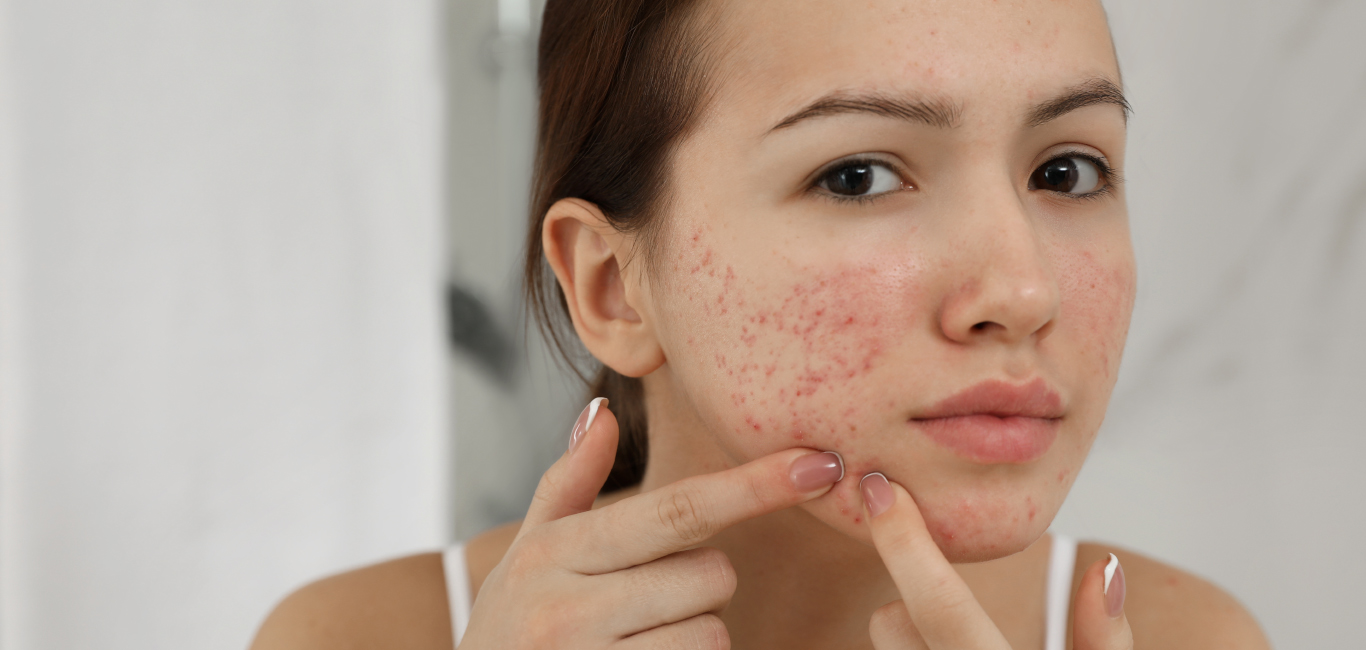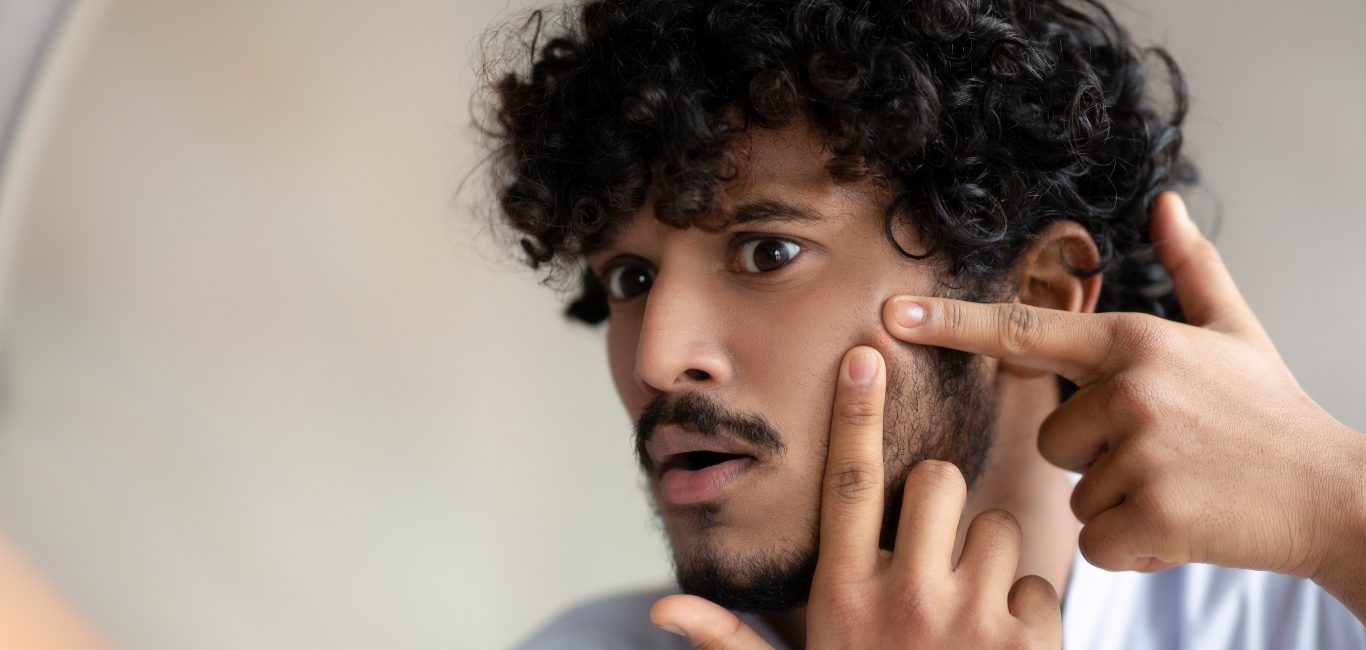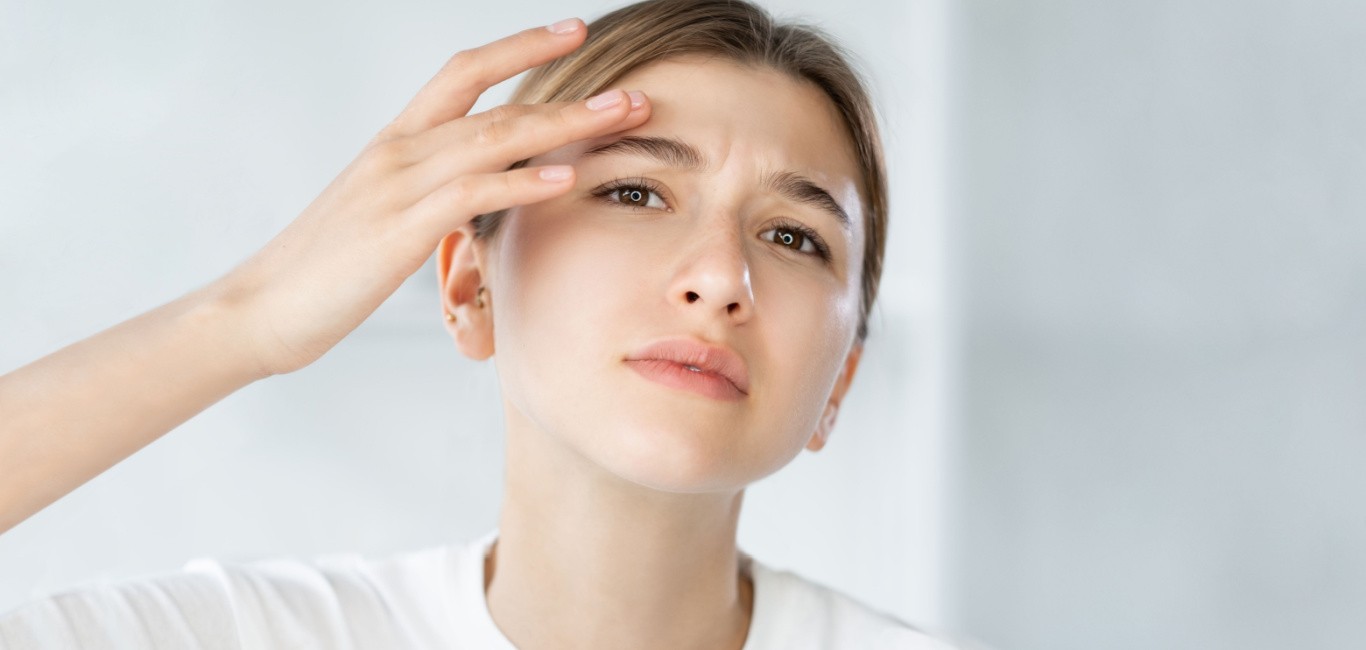
As the chaotic journey of puberty draws to a close, we often think that the battle against acne is over. However, a surprising twist awaits in our twenties — a resurgence of pimples that coincide with hormonal fluctuations. Just when we least expect it, acne rears its head, targeting even the spaces between our eyebrows. Yet, amidst this frustrating predicament, we have options to tame hormonal acne. Before we explore potential hormonal acne treatment, let us first delve into the art of identifying these troublesome blemishes.
Hormonal acne, often referred to as adult-onset or late-onset acne, poses a considerable skin challenge during adulthood. According to Dr Kisalay Saurav, founder dermatologist and cosmetologist at Dr Saurav’s Skin Clinic, Bengaluru, this condition is more prevalent in individuals aged 25-30 and beyond. While hormonal acne tends to affect women more, men can also experience it, often triggered by stress in their professional or personal lives.
Causes of hormonal acne
Dr Jude Dileep, consultant dermatologist at Dr Jude’s Hair Transplant and Skin Clinic in Pondicherry, says that hormonal acne can arise in various circumstances, including pregnancy and menopause. Additionally, conditions due to excess androgen such as polycystic ovary syndrome, obesity, stress, the use of contraceptive pills and progestin-containing implants, certain medications like steroids and anti-psychotics, as well as rarer conditions like late onset congenital adrenal hyperplasia and adrenal/ovarian tumors, can all play a role.
Role of three key hormones
“Androgens influence sebaceous gland size and sebum production, playing a pivotal role in hormonal acne. Estrogen and progesterone levels also affect its occurrence, particularly in conditions like pregnancy and contraceptive use,” says Dr Saurav. Low estrogen levels during menstruation (pregnancy and menopause) can lead to a higher occurrence of acne lesions.
Moreover, increased progesterone secretion can contribute to higher androgen production, thereby raising the likelihood of hormonal acne.
Hormonal acne myths debunked
According to Dr Dileep, not all adults with acne necessarily have a hormonal imbalance. This is because the sensitivity of the androgen receptors (proteins found on the surface of skin cells that can bind to androgens) in the skin can trigger sebum production and cause acne. Additionally, other contributing factors, like UV radiation, pollution, and improper use of skincare products, can also play a role in in some adults. “It is important to recognise that hormonal imbalances are not the sole cause of adult acne, and various factors should be considered when assessing and addressing this skin condition,” he adds.
Underlying conditions
Hormonal acne can arise from various underlying conditions, affecting both males and females.
Conditions affecting both genders include stress, consumption of high glycaemic index foods, smoking, alcohol intake, lack of exercise, inadequate sleep, weight gain, and the long-term use of oral steroids, anti-epilepsy medications, and certain antidepressants. Additionally, the use of hair and skin products that may be acnegenic or comedogenic can lead to acne in men and women.
Dr Dileep says, “Mental stress leads to increased production of stress hormones which have an androgenic effect on the sebaceous glands leading to worsening of hormonal acne.”
Treatment options for hormonal acne
To effectively manage hormonal acne, Dr Saurav says, addressing external factors is paramount. Implementing lifestyle adjustments such as regular exercise, maintaining a healthy diet, ensuring sufficient sleep, reducing stress, and limiting smoking and alcohol consumption are essential first steps. These changes, complemented by appropriate medical management, can help combat hormonal acne and promote healthier skin.
He suggests the following medical interventions based on the acne severity:
Oral and topical antibiotics: To combat bacterial growth and inflammation
Oil- reducing face wash: To unclog pores and prevent buildup
Retinoids (topical and oral): To reduce acne size and pigmentation; oral retinoids can be prescribed for cystic acne
Moisturiser and sunscreen: To protect and hydrate the skin
LASER and chemical peels: For faster improvement and to address acne scars and pigmentation

















